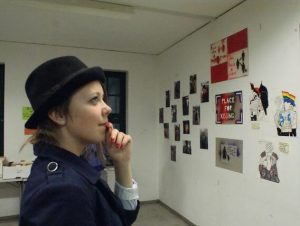Western promises of solidarity: the objectification of Russian LGBTs in neoliberal times of post-homophobic identity formation and homonationalis
Ever since the introduction of the „anti-propaganda laws“ and the controversies over the Sochi 2014 Winter Olympics, LGBTs are at the epicenter of tremendous international attention to the human rights abuses in Russia. Echoing the international outcry against LGBT rights violations, various North/Western LGBT groups launched solidarity campaigns to support their Russian peers. Unarguably well intentioned, many of these initiatives, however, tended to adhere to a developmentalist rhetoric that constructed Russia as increasingly falling behind the Western (= „European“) ideals of Enlightenment, democracy and tolerance. The discoursive creation of these different geo-temporal entities of an enlightened and tolerant Western Europe vs. a backward and homophobic Russia (and Eastern Europe) did not happen in a vacuum, but was reinforced by historic notions of Russian backwardness in matters of sexuality, freedom and civil rights as well as new tropes of repression and isolation when discussing „Putin’s Russia“.
In my study I analyze some major examples of solidarity actions that happened in Western Europe between 2013 and 2014, their visual language and rhetoric as well as the public and political discourse around them. I argue that at least some of these initiatives took the situation in Russia as an opportunity to „infuse“ its political urgency and impetus into their own context: an attempt to re-politicize their local activist scene under the pretext of a global struggle for LGBT rights.
Masha Neufeld

Masha Neufeld holds a diploma degree in Psychology from the Dresden University of Technology and works on her PhD project there, in cooperation with the Centre for Addiction and Mental Health in Toronto. She is interested in unrecorded alcohol consumption and alcohol-related harm and mortality in Russia and worldwide. Further research interests include translocal queer spaces, queer herstory and new impulses on queer-theory and disability theory in/from the post-soviet spaces, especially today’s Russia.